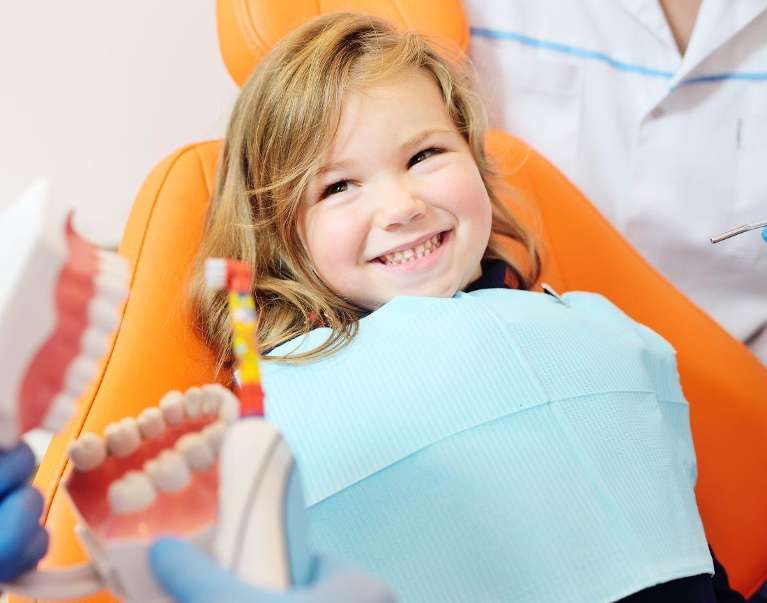
Imagine this: Your child, full of joy and excitement, suddenly winces in pain while eating their favorite snack. A cavity that you didn’t even know was there has turned into a serious issue. As a parent, it’s heartbreaking to see your child in discomfort and even more so to realize that something so simple could have been prevented. But there’s good news: with the proper dental care, issues like this can often be avoided entirely. The secret? Choosing a pediatric dentist.
While general dentists are equipped to treat adults, pediatric dentists specialize in the unique dental needs of children. And if you’re still on the fence about whether a pediatric dentist is necessary, let’s take a deeper look at why this specialized care is essential for your child’s long-term health and well-being.
Becoming a Pediatric Dentist: What You Need to Know
To become a dentist who specializes in treating children, you must complete the following education and training:
- Undergraduate degree — The first step is a 4-year bachelor’s degree.
- Dental school — The next step is a four-year accredited dental school program where you must pass boards and certifications.
- Residency — After dental school, a prospective pediatric dentist must complete a two or three-year residency program where they receive hands-on experience with children of all ages.
Understanding the Pediatric Dentist Benefits
When deciding whether a general dentist or a pediatric dentist is best for your child’s oral and overall health, consider the following benefits of choosing a Palos Heights pediatric dentist:
Specialized Training
One of the biggest reasons your child should see a pediatric dentist is the extensive training that pediatric dental specialists undergo. Pediatric dentists complete an additional two to three years of advanced education after dental school, focusing specifically on the dental care needs of children. This means they are experts in general dental procedures and highly skilled at managing the development of a child’s teeth, jaw, and gums from infancy through adolescence.
Children’s mouths go through significant changes during their formative years. Baby teeth, which serve as placeholders for adult teeth, emerge, fall out, and are replaced by permanent teeth. Throughout these changes, your child’s dental care needs differ vastly from an adult's. Pediatric dentists are trained to understand these nuances and to treat them with the appropriate care.
A Child-Centered Environment
For many children, a visit to the dentist can be an intimidating experience. This is where pediatric dentists shine. Pediatric dental offices are designed with kids in mind. From the bright colors to the toys to the child-sized furniture, these spaces are designed to help your child feel comfortable, safe, and excited about visiting the dentist.
Pediatric dentists also know how to communicate with children in a way that makes them feel empowered and less anxious. They can explain procedures in kid-friendly language, use positive reinforcement, and create a trusting relationship with young patients. Pediatric dentists are often trained in behavior management techniques that help children feel at ease, even when they need to undergo more complex procedures.
The Importance of Preventive Care
We all want what’s best for our children, and when it comes to their health, prevention is always better than treatment. Pediatric dentists emphasize preventive care, helping your child avoid future dental problems and establish healthy habits that will last a lifetime. This starts with the basics, like teaching your child how to brush properly and floss and providing fluoride treatments to strengthen tooth enamel.
However, pediatric dentists go beyond primary care. They are trained to spot early signs of issues like cavities, gum disease, misaligned teeth, and bite problems long before these become serious. Early intervention can mean less pain, fewer invasive treatments, and lower costs in the long run. In addition, pediatric dentists are experts at handling dental concerns specific to children, like thumb-sucking, early orthodontic evaluation, or teething.
Gentle, Kid-Friendly Procedures
When it comes to treating children, gentle, compassionate care is critical. Children’s dental anatomy is different from adults in more ways than one. Baby teeth are smaller, more fragile, and prone to decay. Pediatric dentists have the knowledge and tools to perform procedures specifically designed for younger patients. Whether it’s filling a cavity in a baby tooth, applying a dental sealant to protect molars from decay, or taking X-rays, pediatric dentists use child-friendly techniques that minimize discomfort.
Additionally, pediatric dentists are skilled in making procedures as painless and stress-free as possible. For example, they might have child-sized instruments and equipment to make treatments more comfortable. This level of care can significantly affect how children view dental visits and their overall attitude toward oral hygiene.
The Impact on Long-Term Oral Health
The habits children form early on can profoundly impact their lifelong oral health. A pediatric dentist takes care of existing issues and educates parents and children about the importance of oral hygiene and nutrition. Through regular check-ups and guidance, pediatric dentists help prevent serious dental issues from arising down the road.
Additionally, pediatric dentists monitor the development of your child’s teeth to catch potential orthodontic issues before they become more significant problems. For instance, issues like crowded teeth, bite problems, or misalignment of the jaws are easier to address when caught early. Early orthodontic intervention can often prevent the need for more extensive and expensive treatments in the future.
A Positive Experience for Your Child
One of the most important reasons to choose a pediatric dentist is that they specialize in making dental visits a positive experience. The relationship a child develops with their dentist early in life can shape how they approach dental care for years to come. Pediatric dentists understand that a child’s attitude toward the dentist can be influenced by their early experiences. That’s why they focus on making every visit as friendly and supportive as possible.
A positive experience at the dentist can also help your child develop a healthy attitude toward their overall health. Children who feel comfortable and confident in the dental chair are more likely to be proactive about brushing, flossing, and keeping regular dental appointments as they age. This positive reinforcement sets the stage for a lifetime of healthy smiles.
Your Child Deserves Specialized Care in Palos Heights, IL
Choosing a pediatric dentist is an investment in your child’s oral health and overall well-being. At Palos Pediatric Dentistry, we provide expert care and consider your child's unique dental needs, from infancy through adolescence. We create a positive, reassuring environment that makes each visit something your child can look forward to. Most importantly, we work to prevent dental issues before they become serious problems, ensuring that your child grows up with a healthy smile and attitude toward their dental care.
The bottom line is simple: your child deserves the specialized care and attention only a pediatric dentist can provide. Choosing a pediatric dentist sets your child up for a lifetime of healthy, happy smiles.
Please contact our dental office at (708) 263-6708 to schedule an appointment for your child.



